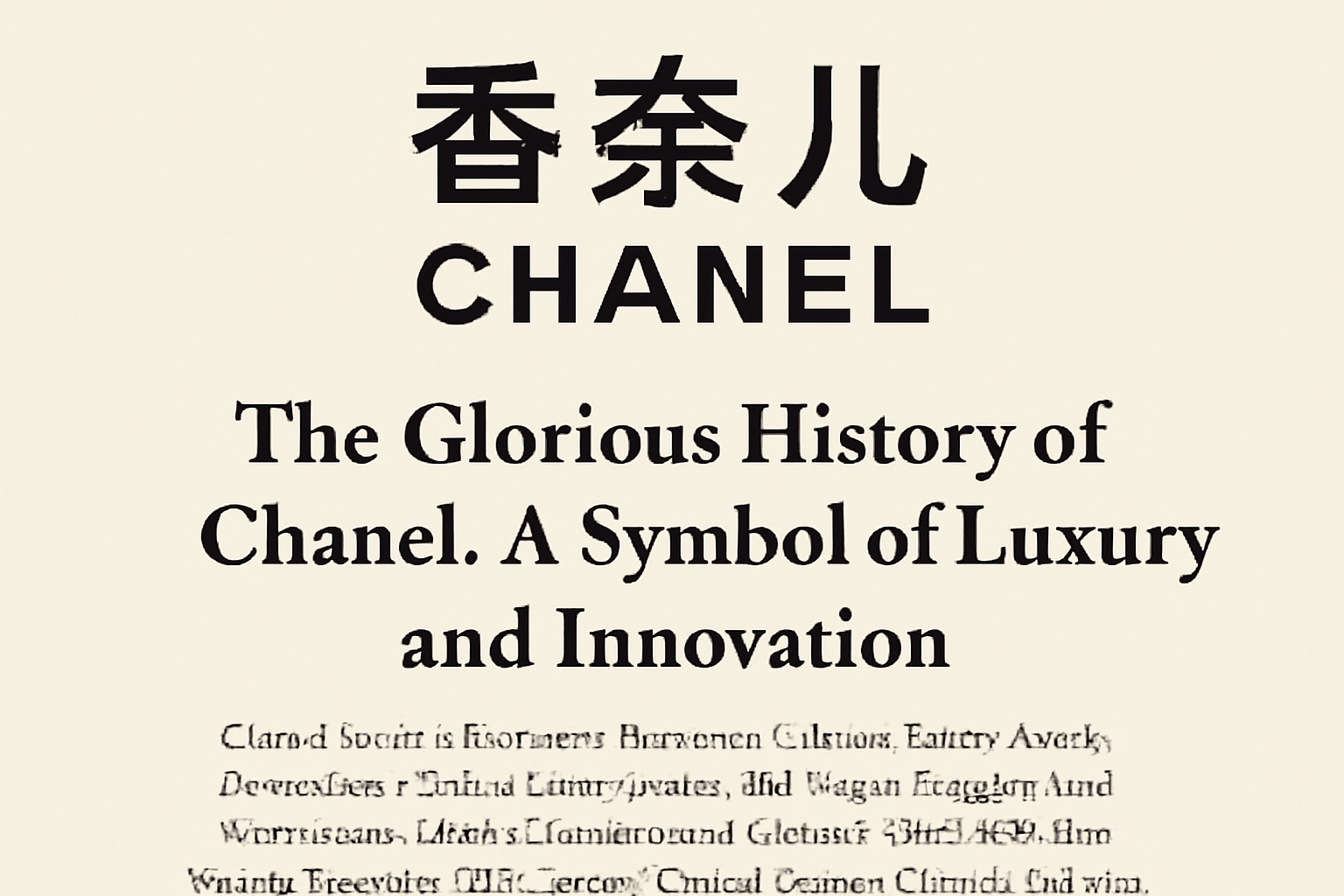Chanel is one of the most influential and iconic luxury brands in the world, almost synonymous with French elegance and refinement. Since its founder, Coco Chanel, established the brand in the early 20th century, Chanel has not only redefined women’s fashion but also become a symbol of luxury and innovation.
Founder: Coco Chanel
Coco Chanel, born Gabrielle Bonheur Chanel in 1883, grew up in a poor family and faced many hardships in her early life. However, Chanel never let these obstacles stop her dreams. In her youth, she worked as a singer and began to gain design inspiration through her connections with society’s elite. In 1910, she opened her first hat shop in Paris, named “Chanel Modes,” and gained significant recognition for her unique designs.
The Birth and Innovation of the Brand
Chanel’s fashion career took a groundbreaking turn in 1921 with the launch of her iconic fragrance, Chanel No. 5. This perfume remains one of the best-selling fragrances in the world, marking the moment Chanel expanded beyond just clothing into the entire luxury goods sector. Chanel No. 5’s charm lies in its distinctive fragrance formula—combining synthetic and natural ingredients—breaking the traditional norms of the perfume industry and showcasing Chanel’s pursuit of innovation.
As the brand grew, Chanel began introducing groundbreaking fashion designs. Her design philosophy moved away from the complexity and restrictions of previous women’s clothing, advocating for more comfortable, free-flowing lines. For example, she boldly incorporated elements from men’s fashion, such as blazers and trousers, breaking traditional norms of women’s wear and creating the “feminine menswear” fashion trend. One of her classic designs, the Little Black Dress, became an essential piece in every woman’s wardrobe.
Chanel’s Innovation and Fashion Influence
Chanel was not only an innovator in fashion but also a symbol of female emancipation. Before Chanel, women’s clothing was often restrictive and impractical, but her design philosophy promoted simplicity, comfort, and freedom, providing 20th-century women with more independence and confidence. Chanel’s philosophy of “freedom” made her an important figure in the feminist movement of the early 20th century.
In addition to clothing and perfume, Chanel’s other outstanding contributions to fashion include her iconic double-C logo and tweed fabric. The double-C logo symbolizes the brand’s nobility and refinement, becoming one of the most recognizable logos in the world. Chanel’s tweed fabric also became a hallmark of her designs, and it continues to be widely used by various luxury brands today.
Chanel’s Later Development
Coco Chanel passed away in 1971, but her brand’s legacy did not end with her death. After her passing, the brand continued to thrive, with many renowned designers carrying on her legacy and innovation, especially under the leadership of Karl Lagerfeld, who ushered Chanel into a new era of brilliance.
Under Lagerfeld’s leadership, Chanel combined tradition with modernity, continuously launching classic designs such as the Chanel 2.55 bag and Chanel jackets, meeting the demands of contemporary fashion. Lagerfeld successfully blended Chanel’s classic elements with cutting-edge design, keeping the brand both historically prestigious and vibrantly modern.
Chanel’s Cultural Legacy
Today, Chanel is not just a fashion brand; it has become an integral part of global luxury culture. Chanel has deeply influenced not only the fashion industry but also art, cinema, and culture. Chanel’s classic pieces, such as the little black dress, tweed jackets, and pearl necklaces, have long become synonymous with luxury and elegance. Its influence extends worldwide, cementing its place as a timeless icon.
Conclusion
Chanel’s success is not only attributed to its outstanding designs and exquisite craftsmanship but also to the philosophy and ideals behind it. Chanel championed women’s independence, freedom, and confidence, offering countless women a platform to express themselves. Regardless of how times change, Chanel will always represent luxury, classic style, and innovation, continuing to influence the global fashion scene.
Chanel is more than just a luxury brand; it is a symbol of a way of life, a transmission of spirit. As Coco Chanel famously said, “Fashion fades, only style remains.” This quote perfectly encapsulates the essence of the Chanel brand: it is not merely a trend, but an enduring and timeless allure that transcends time.


